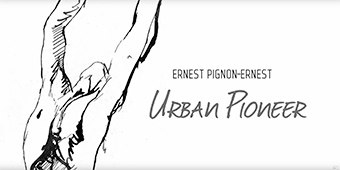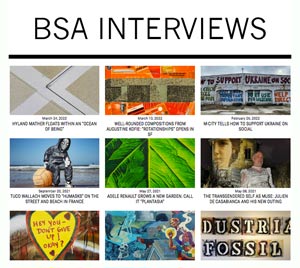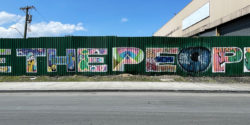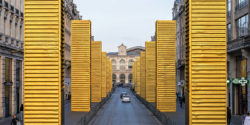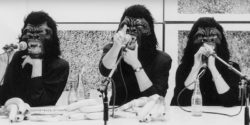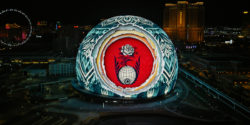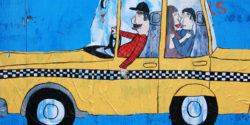
Brooklyn Street Art – Our Weekly Interview With the Streets
All posts tagged: Chris RWK
Abztract Boards show at Pandemic

Billi Kid, Chris RWK, Darkclouds, JMR, Jordan Seiler, Justin Emerson, Veng RWK, Philip Lumbang, Keely, JustinK, Royce Bannon, Shai Dahan, Temple7e
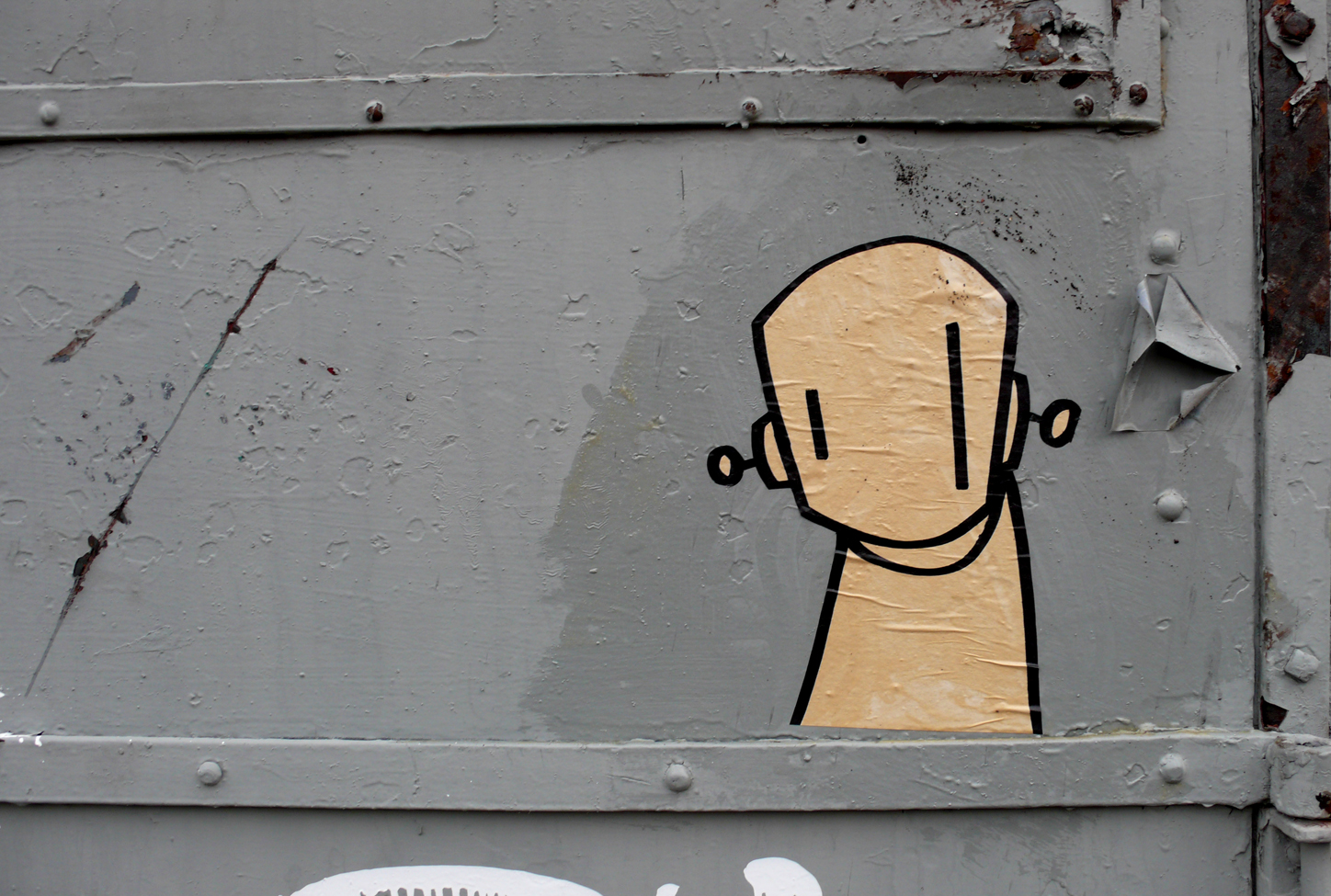
Images of the Week 08.16.09
Our weekly interview with the street
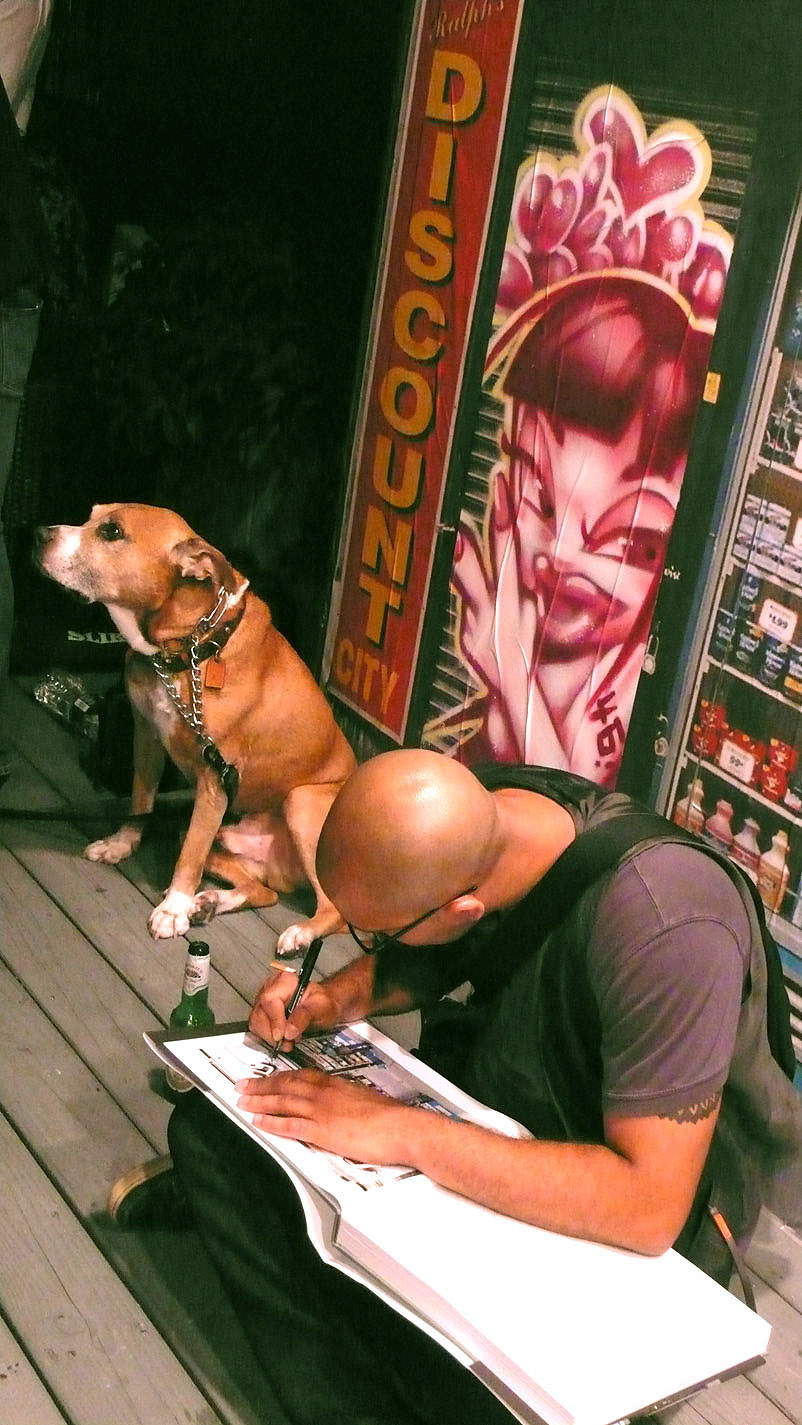
James, Karla and Billi Kid talk about Mom & Popism: Open to Public Saturday
Manhattan is turning into a Mall. There I’ve said it.
In the 80’s when I first got to NYC my best friend guided me through the canyons of Manhattan lamenting the pace of change, the cultural cornerstones gone, the new soul-lessness that was going up in new buildings and neighborhoods. I said, “Get over it, are you kidding? This place is amazing!”
Hi De Hi, Hi Di Ho! Making a call while Billi Kid looks on (photo Jaime Rojo)
Now the pace of “progress” that has turned every small and mid-sized city in America into an interchangeable power strip of Olive Gardens, Radio Shacks, and OfficeMaxes has gradually infiltrated the culturally vibrant and wacky island. But it isn’t only Manhattan, it’s true in almost every neighborhood in the city – In fact, the chains are shackling most of our culture to a homogenized dullness that preys on low-paid workers elsewhere and creates low-paid workers here. How many Mom-and-Pop stores have been wiped out by the undercutting prices and special tax considerations that Big Box stores have?
Ask James and Karla Murray.
They started taking pictures of New York’s Mom-and-Pop stores a decade ago when they were out shooting graffiti. By definition, a Mom-and-Pop is a family-owned and usually family-run business with roots in it’s community, providing needed goods or services and jobs and wealth to it’s small ecosystem. The Murrays noticed that they were disappearing, rapidly. It alarmed them and they published a book featuring those businesses call “Store Front: The Disappearing Face of New York”, featuring 250 images of these Mom and Pops.
Buildmore, Morgan Thomas, and Blanco love pasta! (photo Jaime Rojo)
A new show, open to the public this Saturday, features images from that book blown up almost to their original size in a “streetscape” and installed on a gorgeous rooftop. The twist with this show of storefronts is it also includes the work of 28 artists all over it, thanks to the curating skills of Billi Kid, street artist and entrepreneur. We went to the opening of the event (read here) and then we had the pleasure of interviewing the authors and the curator of the show to get more of the backstory:
Brooklyn Street Art: How did the opening party go?
Karla Murray: The opening party was a huge success. We have to thank Liz and Genevieve at Gawker Artists for helping launch such a great event as well as Billi Kid for planning and curating the event. We have never seen our Store Front photos so big before, let alone be decorated by many talented graffiti and street artists. Lots of media and artists were there to celebrate the unveiling of the exhibit. We also want to thank Bear Flag wines who donated the wine.
Brooklyn Street Art: How did you come up with this unusual idea and then convince Jim and Karla to help make it happen?
Billi Kid: Jim and Karla’s book had been sitting on my coffee table for quite a while and of course, triggered the original idea. MOM & POPism was my fourth collaboration with J&K, our second in which other artists work over their images, so it came down to a matter of trust and love for the concept. To be honest, they jumped right in. No arm twisting on my part. If anything, we three held our breath while waiting for Gawker Artists, who presented the exhibition, to decide whether they wanted to commit their time and resources to the event. Liz Dimmit, our champion and curator of Gawker Artists, fought our battle hard and flipped the POWERS THAT BE over to the dark side.
Brooklyn Street Art: Can you describe the process and materials you used to print these large scale repicas of storefronts?
James Murray: The process began by Billi Kid selecting the photos from our “STORE FRONT” book that he thought would have enough “negative” space for artists to paint directly on top of the photo but still maintain the integrity of the store. After Billi Kid told us his initial selection of images, we worked with him making the final selection. We based this decision on the actual image size because we wanted to use photos that we knew would be able to be blown up to that large size and remain clear. We then gave all the image files to Billi Kid so that he could do the math on every one of them and figure out how large the image would print. He also figured out what spaces the artist would paint on and assigned every artist a particular area to paint on. Billi Kid then printed out our photos in segments of 4 feet wide by 9 feet high on matte photo paper rolls using his wide-format printer. If it wasn’t for Billi Kid owning such a large printer, this project would never have gotten off the ground because it would have been too expensive to print at a local lab.
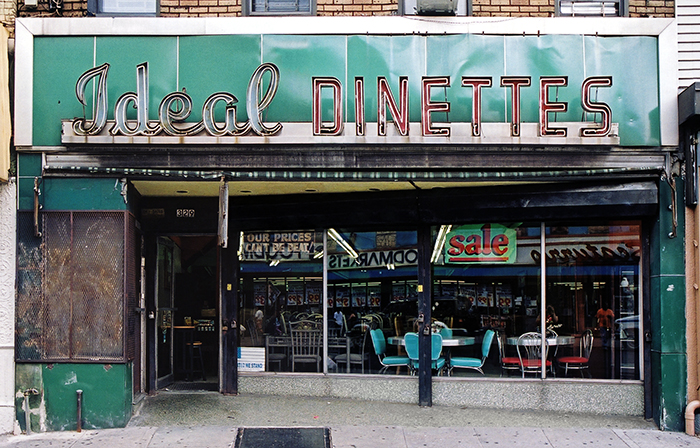
Ideal Dinettes, in business from 1953-2008 Brooklyn, 2004, by James and Karla Murray from “STORE FRONT- The Disappearing Face of New York”
Brooklyn Street Art: Were you ever afraid it wasn’t going to work out?
Billi Kid: Only in so far as the weather was concerned. When we kicked off the planning phase of MOM & POPism, the last thing we figured was a rainy July/August season. Who knew? We had considered the tremendous amount of work involved in getting this to look just right. I mean, Liz Dimmit actually committed to building 9 walls on the roof of Gawker Media HQ so that we could cover them with James and Karla’s beautiful photography. On top of that, we had to figure out the blown-up dimensions of each image and how to layer them up as wallpaper slices. It was definitely touch and go for most of the process, but the stars finally aligned in our favor.
Lady Pink (photo Jaime Rojo)
Brooklyn Street Art: Isn’t Billi Kid rude and difficult to work with?
Karla Murray: Billi Kid is one of the nicest and most generous guys as well as a talented artist. This is the 3rd time we have collaborated with him on an exhibition. The first was a graffiti/street art/photography hotel room installation at the Carlton Arms Hotel in Manhattan and the second was an exhibition called Underground/Overground at the Artbreak Gallery in Williamsburg. We also selected him to be part of an exhibition we are curating during Art Basel Miami called GRAFFITI GONE GLOBAL presented by SushiSamba Restaurants. His work, including the panel he painted as part of MOM and POPism, will be shipped down to Miami and included in the show that takes place from Dec 3-6, 2009.
Brooklyn Street Art: How important is community in a project like this?
Billi Kid: As curator, my first concern for MOM & POPism was to bridge the gap between graffiti/street art and how it is exhibited in a gallery environment. I wanted the public to experience it in it’s pure form, exactly how I see it when I walk the city streets. Secondly, I wanted to continue James and Karla’s “Store Front” conversation along with the sadness felt by all as we watch the disappearing face of New York along with the economic and artistic implications involved. And last, it was all about community. Bringing all of these talented artists to this roof was a dream come true. When working together, the community can go a lot further in spreading the love as far as I’m concerned.
Brooklyn Street Art: What conversation do you hope to spark about the significance of these businesses, and their disappearance?
James Murray: We hope to open people’s eyes to the disappearance of these mom-and-pop businesses and encourage people to shop in them and support them. Since we began the project of documenting these stores over 10 years ago, over half of the images which appear in the book have now closed. With the economy doing poorly even more businesses are threatened. These mom-and-pop stores are what makes each neighborhood in the 5 boroughs unique. They are the backbone of the community and when they close a little piece of history is lost.
Brooklyn Street Art: Do you think people are beginning to make the connection between corporate power, globalism, big box stores, and the killing off of Mom-and-Pop’s?
Karla Murray: We hope that people do make the connection between corporate power and big box retailers and the killing off of Mom-and-Pops. People often have the misconception that shopping at a big box is cheaper then going to a local store but it’s not true! Many store owners have told us that their prices are actually lower and the quality of their goods are better. These mom and pop store owners take pride in what they sell and stand behind their product whether its food or clothing or whatever. Many of these businesses have been handed down from generation to generation and the owners are proud to have their name attached to their store.
Brooklyn Street Art: Sometimes when you stretch your mind to combine art and artists in a new way, you can reach a new audience. Maybe you are letting more people know about these artists…
Billi Kid: Whenever I have a willing ear, I’m always talking about preaching beyond the choir. The work deserves and demands a wider audience. It’s beautiful to see and read how people outside of the graffiti and street art world reacted to MOM & POPism. Hallelujah!
Brooklyn Street Art: Now that the family owned stores are gone, do you see any hopeful signs in the development of the cityscape?
James Murray: Many family-owned businesses are still in existence so we remain hopeful that the cityscape will not change too drastically.
Infinity says he liked the garbage bags piled there because it looks more realistic (photo Jaime Rojo)
Brooklyn Street Art: What was the biggest surprise of the whole installation?
Karla Murray: The biggest surprise was all the rain we got while doing the installation. We knew going into this that the weather was not something we could control but we really were subjected to extremes. The boards were even blown over by a heavy wind/rain storm and had to be secured more tightly. When the artists were painting on the photos we had to erect “tents” out of tarps to keep them covered from the heavy rain storms. We even had to change the date of the opening party under threat of rain. Despite all this, everything worked out well and the photos and artwork held up remarkably well to the elements.
David Cooper signing a copy of Jim and Karla’s book (photo Jaime Rojo)
Brooklyn Street Art: Work and logistics aside, it looks like you had fun putting this one together!
Billi Kid: OK, scratch everything I said so far! Hell yeah!!! It was all about having fun! Seeing how much pleasure each artist had working and looking over each other’s shoulder was my finest moment in bringing MOM & POPism to life. At the end of the day, we ALL have to enjoy what we do, because it shows.
Here’s a piece by videographer Greg DeLiso:
MOM & POPism include Blanco, Buildmore, Cake, Celso, Cern, Chris (RWK), Crome, Cycle, David Cooper, Destroy & Rebuild, Enamel Kingdom, Goldenstash, Infinity, Kngee, Lady Pink, Matt Siren, Morgan Thomas, Peru Ana Ana Peru, Plasma Slugs, Royce Bannon, Shai R. Dahan, Shiro, The Dude Company, Tikcy, Under Water Pirates, Veng (RWK), Zoltron and Billi Kid.
MOM & POPism will be open to public on Saturday, August 15th from noon to 4 p.m. Additional exhibition viewings are available by appointment throughout August.

Previous projects that combined the talents of James and Karla and Billi:
An article James and Karla wrote about Billi in Peel Magazine
The room Billi did at Artbreak Hotel with James and Karla
Underground Overground with Billi, James and Karla and Cern
See an exhibition of photos from the book at the Clic Gallery now through September 27, 2009
Mom and Popism Brings the Street to the Roof
Tuesday night the summer air was heavy and thick, after an “ozone alert” day in New York drove most sensible people inside corner delis to slide open the icecream case and stare at popsicles for a few minutes, cooling off in the process. Thankfully there is always the roof!
Billi Kid led a cadre of 28 street and graffiti artists up the stairs above Gawker’s plush and well-appointed offices to host an unusual show called “Mom and Popism”. It was officially a press preview but there were about 150 people, cocktails, fancy snacks, a DJ, and even a few high-class prostitutes, but they came in with us.
Aside from the impressive list of participants, what makes this show remarkable is the use of Jim and Karla Murray’s photographs of New York “mom and pop” storefronts, blown up to nearly their original size, then carefully appointed with work of the artists in such an integrated way that it’s as if they brought the sidewalk up to the 4th floor.
One of the street artists, Royce Bannon, was on hand at the preview to talk about his experience;
BSA: How was it putting your piece up on a photograph of a storefront?
Royce: Uh, it was interesting. It was alright, it was fun, it was cool. I was in and out really fast.
BSA: Where you concerned that it wouldn’t really look like the street?
Royce: Actually I was concerned about what material they were going to use because I didn’t know what kind of paint to bring. I like Jim and Karla’s photography anyway so I would have done whatever they wanted.
BSA: Does this particular monster have a name?
Royce: Penny, because she’s got penny eyes. Like remember on PeeWee Herman, remember the Penny?
The night breeze was a relief, Jim and Karla were gamely signing copies of their book “Storefront: The Disappearing Face of New York”, artists were signing and creating pieces in each other’s copy of the book, and there was a fair amount of posing. The guests standing in front the storefronts created more than one or two double-takes because you could easily be transported to the streetscape without realizing they were photographs.
There will be a public showing of the installation on the 15th and we’ll be talking to Jim and Karla and Billi the Kid in upcoming posts, but first here’s a quick slideshow of behind-the-scenes makeing of the show from Mr. Kidd.
Artists featured are: Blanco, Buildmore, Cake, Celso, Cern, Chris (RWK), Crome, Cycle, David Cooper, Destroy & Rebuild, Enamel Kingdom, Goldenstash, Infinity, Kngee, Lady Pink, Matt Siren, Moran Thomas, Peru Ana Ana Peru, Plasma Slugs, Royce Bannon, Shai R. Dahan, Shiro, The Dude Company, Tikcy, Under Water Pirates, Veng (RWK), Zoltron, Billi Kid
Images of Week 07.26.09
Our weekly Interview with the Streets
Mom and Popism, Curated by Billi Kid, Street Artists and Graffiti Artists collaborate with James and Karla Murray
MOM & POPism, an exhibition curated by Billi Kid reinterpreting James and Karla Murray’s latest book
Store Front: The Disappearing Face of New York,
in unique collaboration with many of today’s hottest graffiti and street artists.
August 15, 2009
12 noon to 4 pm
210 Elizabeth Street, 4th Floor
Store Front: The Disappearing Face of New York is a breathtaking visual guide to New York City’s cultural heritage, with special emphasis on the historic streets and ethnic shops that have defined its many neighborhoods. Meticulously photographed, its powerful images of time-worn institutions will be printed at close to life-size scale and installed on the Gawker Media roof, becoming canvases on which select graffiti and street artists are invited to leave their indelible marks. The result will be a unique impression of a New York City that seems to be fading with each passing day. Our cultural and economic landscape will be called into question, the role of art, particularly graffiti and street art, will be subject to reinterpretation.
Curated by Billi Kid, MOM & POPism brings together graffiti and street artists to create new artworks on top of the Murray’s photographs. The collaborating graffiti and street artists represent some of the most notable artists in the street art community and the media at large. These include Blanco, Buildmore, Cake, Celso, Cern, Chris (RWK), Crome, Cycle, David Cooper, Destroy & Rebuild, Enamel Kingdom, Goldenstash, Infinity, Kngee, Lady Pink, Matt Siren, Morgan Thomas, Peru Ana Ana Peru, Plasma Slugs, Royce Bannon, Shai R. Dahan, Shiro, The Dude Company, Tikcy, Under Water Pirates, Veng (RWK), Zoltron and Billi Kid.
MOM & POPism will be open to public on Saturday, August 15th from noon to 4 p.m. Additional exhibition viewings are available by appointment throughout August.

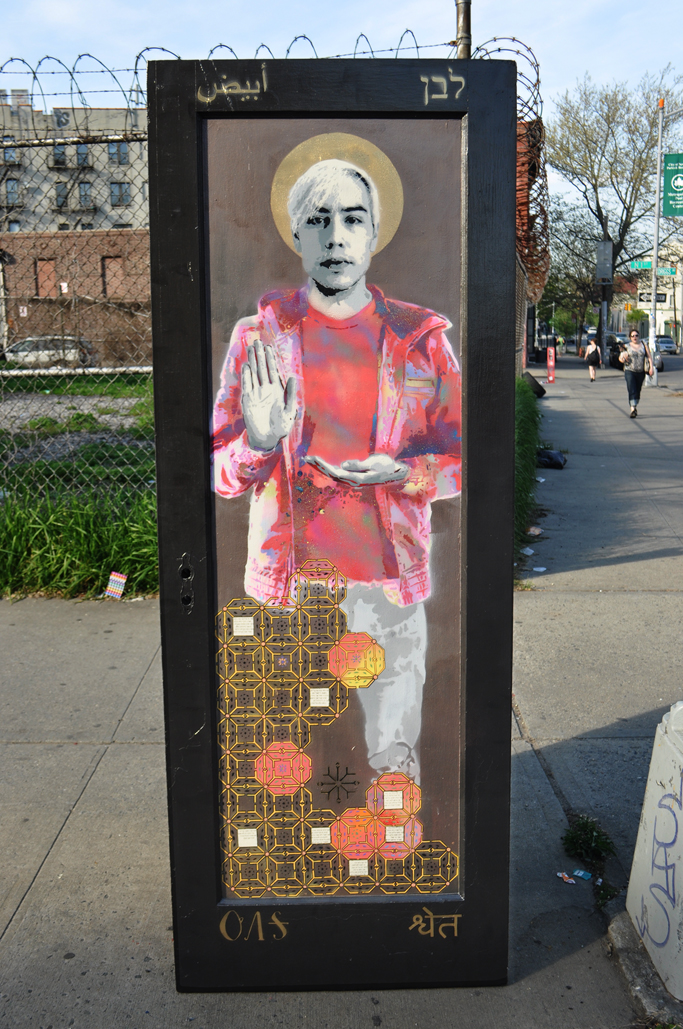
“The Great OutDoors” with Luna Park at ArtBreak Gallery
A true street art Opening in Brooklyn, with shutters open wide and many doorways to contemplate.
A collection of 30 artists on the street art scene are contributing to the vision of the adoorable Luna Park and her co-curator Billi Kid. Ms. Park, a well-travelled street art photographer who calls Brooklyn home, is among a very select group of intrepid souls cris-crossing the borough by any means possible to get the right shot.
Well regarded and always smartly outfitted, Ms. Park and Mr. Kid have added a bit of poetry to the street art oeuvre by decorating the departure, edifying the entrance, festooning the frontage, and gilding the gateway!
Brooklyn Street Art: How did you and Billi Kid conjure a show using doors as canvas?
Luna Park: Last year, Billi Kid, Jim and Karla Murray, Cern and Elisha Cook Jr. decorated a room at the Carlton Arms Hotel, which is known for it’s fabulous, one-of-a-kind, artist-decorated rooms. I highly recommend it as an affordable place to send your arty guests. To capitalize on the network of artists they’d built through the hotel, in March 2008 the owners opened Artbreak Gallery in Williamsburg. When Billi Kid contacted them about the possibility of doing a doors-themed street art show, they were immediately on board. I agreed to participate last December and the rest, as they say, was a matter of logistics, logistics, logistics.
Brooklyn Street Art: As you march across the city looking for great shots, have you found that some artists gravitate to doorways?
Luna Park: Definitely! I’d even go so far as to say not only SOME, but MANY. Your average urban door is the perfect gateway to graffiti – pardon the pun – it provides a smooth, even surface, accessible to all and, most importantly, visible to all. Although I don’t subscribe to the so-called “broken windows” theory of graffiti leading to crime, I do think it holds true for doors in the sense that graffiti on doors DOES attract more graffiti. It generally starts with a lone tag and – provided that tag isn’t buffed – the tags soon multiply. Before you know it, stickers get in on the action, the odd wheatpaste sticks around and, voila, suddenly you have a proper door!
Brooklyn Street Art: Why would a doorway be better than, say, a wall?
Luna Park: I’m not saying doors are better than walls, but as a surface on which to write or stick, a doorway offers a certain degree of protection from prying eyes. No one looks twice at someone who is ostensibly fumbling for keys in front of a doorway, but that same person loitering by a wall…
Brooklyn Street Art: Where did all of these come from? Have you been dumpster diving?
Luna Park: Well, I’m certainly not one to condone any kind of illegal activity, ahem, so I’m assuming the doors were all acquired legally, perhaps through a fine, neighborhood purveyor of sundry household items.
I personally salvaged two doors from the curb down the street from my house. Billi Kid acquired his door and several others at a farmhouse sale in rural Connecticut. A few people must have visited demolition sites, as there are a number of extraordinarily heavy fire doors as well. The doors really run the gamut of everything from vintage to factory fresh.
Brooklyn Street Art: Are most of the pieces in this show made specifically for “The Great Outdoors?”
Luna Park: Yep, with one notable exception, all of the pieces for this show are brand spanking new!
“Close the door on the past. You don’t try to forget the mistakes, but you don’t dwell on it. You don’t let it have any of your energy, or any of your time, or any of your space.” – Johnny Cash
Brooklyn Street Art: Every door has two sides; has anybody addressed both for the show?
Luna Park: We asked the artists to decorate only one side of the door – to make hanging them all the easier – but Celso and LA2 collaborated on one side of a door that already had a piece on the other side. I’d mention who, but that would spoil the surprise.
Brooklyn Street Art: It’s not the same as painting ox blood over the doorway, but do you think there is any symbolism to the act of decorating a door?
Street art and graffiti covered doors aside, I think the decorated door functions as a marker, defining the threshold between the private and the public spheres. There are certainly any number of cultures around the world that place markings on doors to celebrate rites of passage: in the part of northern Germany from which my mother comes from, it is not uncommon to see important family dates chalked onto doors, presumably in conjunction with some kind of religious blessing.
“we often look so long and so regretfully upon the closed door that we do not see the one which has opened for us.” – Alexander Graham Bell
Brooklyn Street Art: On a grander scale, this show could be a commentary about the times we’re in, with many doors slamming shut, while others that we scarcely imagined only two years ago are opening wide. Do you care to philosophize?
Luna Park: I’m an optimist at heart and a pragmatist by nature, as such, I believe very much in silver linings and unforeseen occurrences. Especially in times of crisis, one has to embrace change, because only by accepting change can one move forward. When Billi Kid approached me with the opportunity to co-curate this show, you better believe I opened that door, despite initial misgivings about never having organized anything of this magnitude before.
I can only speak for myself, but having this show – something I’ve come to see as an incredibly positive force in my life – to occupy me and to look forward to has made the struggles I endure at work all the more bearable. I am slowly realizing that this show has opened doors for others, and that has made this experience all the more meaningful to me. By the same token, the outpouring of support from the street art community – BSA included – has been enormous and for that I am very grateful.
Brooklyn Street Art: Given their past locations and your personal experience shooting the streets, what does it feel like to see these doors lined up in a spare white box gallery space?
Luna Park: There is often critique of street art and graffiti work in galleries, in many cases justified in that some work simply does not translate well onto canvas. But in this case, we’re literally bringing doors in off the street and taking them to the next level (the gallery’s on the 2nd floor). Because the doors are relatively large and heavily decorated, being surrounded by a clean, white gallery wall gives each piece space to breathe. Above and beyond that, it’s nice to see the humble door elevated to a place of honor.
“Listen; there’s a hell of a good universe next door: let’s go.” – e.e. cummings
Brooklyn Street Art: What door surprised you the most?
Luna Park: Without a doubt, Blanco! I’ve been following his stencils since he first started putting them out, seeing his progression with each, more intricate piece. When we invited him to be part of the show, I had high hopes, but he’s really exceeded all expectations and then some! Bravo, J!
That having been said, I’m very pleased by the quality of ALL the work and am super proud of everyone’s efforts. My sincerest thanks to everyone that helped make this show possible.
Brooklyn Street Art: What time do doors open on Saturday?
Luna Park: Doors open at 6pm. I for one can’t wait to find out if it’s Bachelor #1, #2 or #3 behind my favorite door! ;p
“Ten men waiting for me at the door? Send one of them home, I’m tired.” – Brooklyn’s own Mae West
THE GREAT OUT DOORS
MAY 2 – 29, 2009
Art Break Gallery
195 Grand Street, 2nd Floor, Brooklyn, NY 11211
Thursday through Sunday, 1-7 pm.
Opening Reception Saturday May 2, 6-10 pm
At the opening Saturday you’ll also get to see a projection show of Luna Park’s photography, specifically images of doors on Brooklyn streets and elsewhere.
“Work to Do” is on Schedule for March 26 at The Combine
Royce Bannon and the Endless Love Crew
have been working hard and probably playing a little too, and the group show they have engineered is a quick primer on what street art is looking like at the moment in Brooklyn, and elsewhere. The show inaugurates a hallowed creative space for artists in Soho and christens it with a new name, The Combine, at 112 Greene Street in Soho.
The theme of the show, “Work to Do” pays a tribute to words and works of the new president in this land, and Afrika Bambaataa has written a new song with the same name, which he’ll be performing when he reunites with the Soulsonic Force at the opening.
See more about the show and our interview with Royce here.
“We have to work like our future depends on it, because it does” – Barack Obama
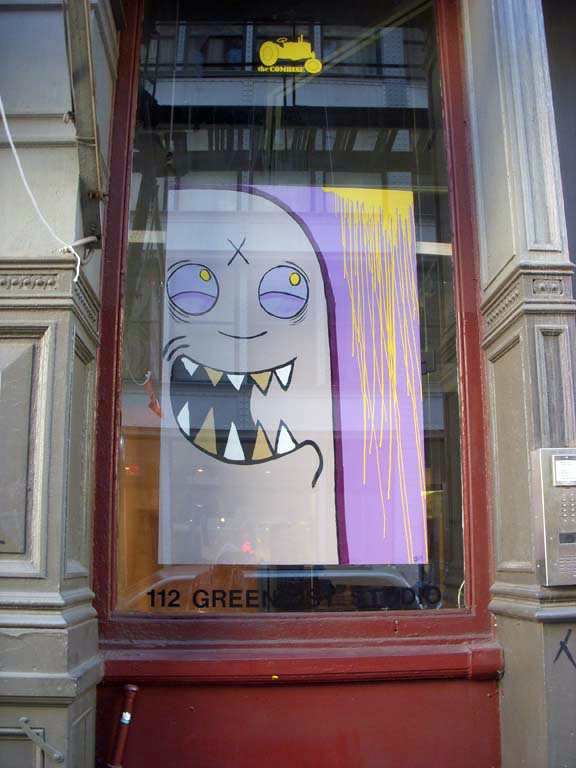
Royce and ELC Workin’ in a Combine
112 Greene Street Revived by Street Artists
Like Obama says, we’ve got work to do, people.
Royce Bannon and a diverse team of talented street artist/graff writers are taking the challenge seriously: Revive the artists’ space in Soho that boasts a proud history and restore it to the constructive, collaborative, democratic roots of a real artists’ community; one that will have a mission of giving back, as well as re-establishing a laboratory for discovery.
These are times for bold actions of hope, and all hands are on deck for a show opening this month called “Work to Do” at 112 Greene Street in Soho, a place that first flourished in the years before the Reagan Revolution.
Long before Soho became a jewel encrusted haven for high-end couture, over-priced “foodie” groceries, hi-jacking delis, and exclusive password private clubs, the wild-eyed artists were the only people interested in the abandoned buildings south of Houston, and north of Canal. In the decade of the 1970’s, during a financial crisis when a Republican president told our bankrupt city to “drop dead”, that he would veto any bailout for a cash-strapped NYC economy, Soho was a largely abandoned carcass of warehouses and lifeless factories. As is so often the case, it was the perfect playground for the innovative talents of artists and art students needing cheap raw space to create and coalesce and eventually re-start the engine of cultural growth. Like the Williamsburg/Greenpoint/Bushwick neighborhoods in Brooklyn today, Soho in Manhattan was a pounding heart in a hurting city that was drained by an energy crisis, sapped by a costly possibly illegal war on foreign soil, and duped by the ponzi-schemes of corporate titan opportunists at home.
112 Greene Street in Soho was the original home of 112 Workshop, a raw space open between 1970 and 1980, offering exhibition space for installation and performance for the new generation of conceptual artists who emerged from the radicalized minds and cultural upheavals of the previous decade.
With artists having complete control to curate their shows, the space put on challenging and inspirational work of hundreds of people. During the life of this laboratory it produced a list of influential performers and artists that helped shape the cultural cityscape over next 30 years, including names like Vito Acconci, Laurie Anderson, Joseph Beuys, Louis Bourgois, Chuck Close, Spalding Gray, Phillip Glass, Fran Lebowitz, Jeffrey Lew (co-founder), Gordon Matta Clarke (co-founder), Richard Mock, Richard Serra, William Wegman.
A spirit of collaboration and lively exploration returns to this space on March 26 when street artists well known in North Brooklyn today clear out the moribund basement space at 112 Greene and electrify the walls with a new era of youthful big ideas – and with thanks to those who came before in this hallowed space.
Royce Bannon, core member of the collective ELC (Endless Love Crew), is curating an audacious and boundless graphic cavalcade of street art styles to christen the historic space that honors the creative spirit. While ELC has a rotating roster that sometimes totals as many as 9 artists with a variety of styles, the currently active members of the ELC for this project will be Abe Lincoln Jr., Anera, El Celso, infinity, and Royce Bannon. With everyone working collaboratively, the “Work to Do” show pays homage to the new president and embraces a new reality that artists and creatives in the city are feeling right now.
The 112 Greene Street space is christened The Combine with this inaugural show. Steve Loeb and John Robie are creating The Combine to provide a new environment for the exhibition of art; an alternative to the traditional gallery opening and exhibition, transforming static work into multi-media, performance oriented events.
On a recent sunny Saturday, with Soho sidewalks anxiously trampled with tourists dragging shopping bags out of Prada, Dean & Deluca, and the Apple store, Royce and Chris from Robots Will Kill are laboring below street level on work for the new show. Descending the stairway you hear the blasting remixed hip-hop jams, see the spray-painted names along the walls claiming space for pieces; Ad Deville of Skewville and U.L.M. have staked their real estate, as has Cake and the Smart Crew. Others have already created pieces on their wall allotment; a 7 foot tall Mochni from Veng on the landing, a chaotic collage from Kosbe as you hit the floor, a manic back wall collaboration with Deekers, infinity, and Celso.
Royce sits at his makeshift table of plywood and saw-horses, pouring over a large book about 112 Workshop, marking its’ pages with post-its, and eyeballing every available inch of the entire basement space, thinking about how to fill it, and with whom. His phone keeps ringing, but he’s concentrating on the long rectangular room. He’s loving this moment, and proud of the work his friends have put into the space. Chris from RWK climbs a ladder to lay-in the first wash of color that will build the backing of… perhaps a robot?

Did you hear the new one about Octomom? (Royce Bannon, Dain, and AVOID Pi) (photo Steven P. Harrington)
The mottled concrete floor is marked with blue tape where a stage will be built for Afrika Bambaataa and Soulsonic Force on opening night, and the backdrop wall is already claimed by an undulating AVOID Pi tentacle, some Dain wheatpasted portraits that well up with fluorescent tears, and some smart-aleck monsters from Mr. Bannon himself, and a space remains for Abe Lincoln Jr.. Walk past a stack of plywood into a makeshift rectangular “gallery” room where many 3’ x 8’ foamcore canvasses lean – soon to showcase Deekers, infinity, Celso, and Royce pieces and hung in the windows of a music store further north of here.
Brooklyn Street Art: So who decided to put on this show?
Royce Bannon: Steven Loeb (composer, arranger, producer) and John Robie (composer, musician and record producer). They both have really extensive resumes in the music industry that go back to the 70’s – have worked with so many great musicians and artists that have impacted most of us – Kurtis Blow, Public Enemy, James Brown, LL Cool J… and a lot more. This is their space, and they’ve given me full control to make this show rock.
Brooklyn Street Art: How did you get involved?
Royce Bannon: They hit me up on MySpace about a year ago, I guess. They knew about ELC and liked our work. About November or December they asked me if we could throw an ELC show and I was like “Sure!” We got together and had lunch and they showed me the space. It was a mess when I saw it. It was full of a bunch of wood, tables, broken furniture, junk… it was basically used for storage, hadn’t been used for anything I guess for years.
Brooklyn Street Art: Are they planning to use the space after the show?
Royce Bannon: Yeah, they are turning it into an event center, mainly for charitable events. They want to make money, but they want to give back as well. This will be the first kind of event that is following that approach.
Brooklyn Street Art: So they first contacted you to do an ELC show, but you actually know a lot more people who can do work in a space like this.
Royce Bannon: Yeah exactly, they were like “we like ELC” and I said, “This is a lot of room to fill for just ELC, so why not invite people who I admire, and some of their friends and we can just crush this whole place up?”
Brooklyn Street Art: Have you had to tell people “no” since this roster started filling up?
Royce Bannon: Yes, (laughs) I’ve been telling people “no” a lot, and that’s really hard. What I’ve been telling them is to hold on, and once everybody paints, there will be other smaller or tight spots where they can do “fill-ins’, cause some people like those smaller spots too.
Brooklyn Street Art: Looking at this giant space, you are giving people a lot of real estate; these spaces look like 8’ by 8’ chunks of wall. That’s pretty generous.
Royce Bannon: Yeah definitely, why not? The spaces are claimed, and we’ve got lots more space to do, and about a third of it is done already.
Brooklyn Street Art: Are people excited to be in the show?
Royce Bannon: Yeah, very excited, I think it’s gonna be like a madhouse in here. It’s about 4,000 square feet floorspace.
Brooklyn Street Art: You have been working long hours to accommodate all these artists?
Royce Bannon: Yeah, since mid-January I’ve been here like 12 hour days, sometimes late at night. First we had to clean up the space, figure out what materials we wanted to keep. We’re using everything they had left here and re-purposing it, cause “why not”. Better than throwing it away. Like my monsters are cut out of some bookshelves (laughs). They’ve been supplying us with whatever tools we need, gave us a bunch of paint. So with extras, like ladders and tools, I just go to them and we can get to work. They are really supportive of us, plus they’re collectors.
Brooklyn Street Art: So some of the artwork is going to be on sale?
Royce Bannon: Yes, I think some of the people are going to actually put their artwork on top of their pieces. We’re going to make a little gallery (gesturing to a 10’x 14’ room) – I think some people are going to put their stuff in there. We’re going to cover the floor, I think, in fake grass… brighten the space up a little bit. But we still got a lot of work to do.
***********************
In planning for the new show, Royce and all of the artists have been inspired by the words of the 44th president:
“In reaffirming the greatness of our nation, we understand that greatness is never a given. It must be earned. What is required of us now is a new era of responsibility – a recognition, on the part of every American, that we have duties to ourselves, our nation, and the world, duties that we do not grudgingly accept but rather seize gladly, firm in the knowledge that there is nothing so satisfying to the spirit, so defining of our character, than giving our all to a difficult task. It has been the risk-takers, the doers, the makers of things – some celebrated but more often men and women obscure in their labor, who have carried us up.“
For more info on ELC and its members:
ELC
Royce Bannon
infinity
El Celso
Abe Lincoln Jr.
AnerA
So far the lineup for the show includes: Endless Love Crew, Moody AA, Cabahzm, Cake, 2Easae, Avone, Chris RWK, Veng RWK, Brando * Nev1 * Sinatra Smart Crew, AVOID pi, infinity, Deeker, Keeley, El Celso, Dain, Pufferella, Skewville, Royce Bannon, AnerA, Abe Lincoln Jr., Ellis Gallagher AKA Ellis G., Matt Siren, Overconsumer, Kosbe, Aiko, Abby Goodman, Alone art, Bast, Ben Jackson, Bobby Hill, Buildmore, C. Damage, Chris Brennan, Christopher Gordon, Dark Clouds, Deeker, Destroy and Rebuild, Erica Faulke, Keely, Pufferella, OHM, Smells, Stikman, U.L.M.
“Work to Do” show at 112 Greene Street
Royce Bannon and a diverse team of talented street artist/graff writers are taking the challenge seriously: Revive the artists’ space in Soho that boasts a proud history and restore it to the constructive, collaborative, democratic roots of a real artists’ community; one that will have a mission of giving back, as well as re-establishing a laboratory for discovery.
These are times for bold actions of hope, and all hands are on deck for a show opening this month called “Work to Do” at 112 Greene Street in Soho, a place that first flourished in the years before the Reagan Revolution.
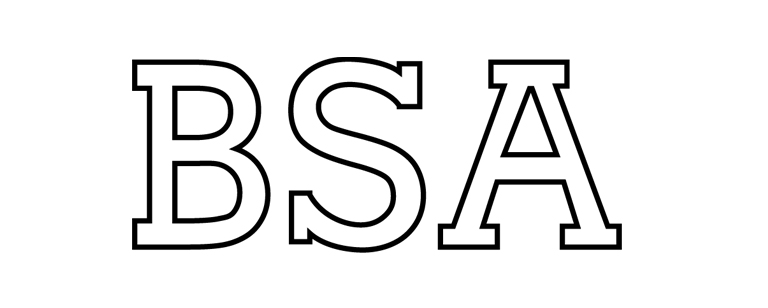 BROOKLYN STREET ART LOVES YOU MORE EVERY DAY
BROOKLYN STREET ART LOVES YOU MORE EVERY DAY












































































